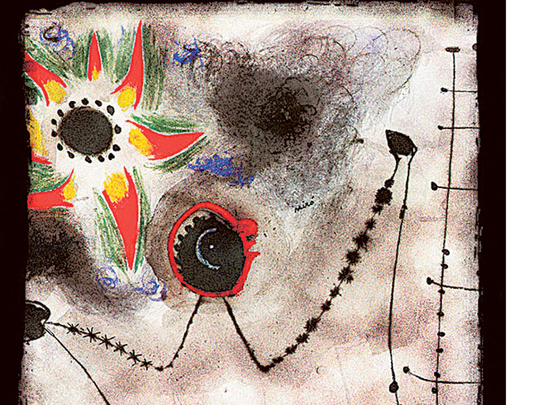
Uncertain Glory
By Joan Sales
MacLehose Press, 560 pages, £20
If a novel with a Spanish theme is to succeed, says Juli Soleràs, the facetious antihero of this magnificent civil war novel, “the hero just has to be a bullfighter and the heroine a Gypsy and by the third chapter they must be fornicating in a tropical jungle full of wild bulls”. Foreigners “will turn this huge mess into stirring stories of bullfighting and Gypsies”.
Notwithstanding the cynic’s jibe, the “huge mess” of 1936-39 is familiar to English-speaking readers largely through Orwell and Hemingway. Seen through Spanish eyes, “Uncertain Glory” — originally published in 1956 and now available in Peter Bush’s superb English translation — was the first Catalan novel to depict the civil war from the defeated, republican side. Banned, then mutilated by Franco’s censors for its “heretical ideas” and “obscene language”, it appeared, heavily revised, in this uncut version in 1971. Yet Joan Sales, who fought for the republicans in the Aragon trenches he portrays (and died in 1983), undercuts sides and causes, good and evil. As Juan Goytisolo, the exile who championed the novel in the 1950s, writes in an introduction, it gives no ground to “glib partisan flag-waving” in its grief at the absurd “procession of blood, death and injustice”.
The title evokes the doomed Spanish republic, proclaimed in April 1931, through Shakespeare’s “uncertain glory of an April day” in the precarious “spring of love”. With three characters enamoured of the same woman, the thwarting of youthful passions against the backdrop of the war makes for an undertow of disillusionment — and a riveting read. The protagonists are former student friends from Barcelona and a brother in arms, all drawn to anarchism. Lluís de Brocà, a lawyer posted to the Aragonese front, and Trini Milmany, a geologist and “new woman” from an anarchist family, have a son together outside marriage. Lluís writes to his brother about life in the trenches, and his enthralment to the former maid and lover of a “martyred” Francoist, whose eye is on securing the deeds to her castle. Trini’s letters to their mutual friend Soleràs, philosopher-cynic and mordant prophet, are a fascinating record of Barcelona’s home front, with rationing, air raids and a brutal “priest hunt” across Catalonia. The final part is the retrospective wartime memoir of Cruells, a medical adjutant and would-be priest of the slums, who aspires to saving the couple’s informal marriage but has his own crisis of faith.
Where Orwell encountered rats, Sales notes “battalions and brigades of flies”. Drawing metaphors from putrefying donkeys and a mule’s festering sores, this realist novel also juggles with ideas, from existentialism to pacifism, Spinoza to Stendhal (the author translated Dostoevsky’s “The Brothers Karamazov” into Catalan). There are shafts of humour. Lluís is horrified by mortajo, a regional delicacy of “sheep’s belly stuffed with the unfortunate beast’s entrails”, from which “vapour hisses out as if it were a steam engine”. Some of the sharpest satire is reserved for the “revolutionary carnival”, as Barcelona’s well-to-do hide in exaggerated proletarian garb. Meanwhile, in a curtain-raiser for the 1960s, anarchist “free love” is exposed as yet another pretext for unscrupulous men to leave women holding the baby.
Writing under Franco, when battle lines were drawn in blood, Sales blurs them. “We were republicans because the zone ... where we were born, was republican.” Anarchists fire on communists. Antifascists burn churches and beat priests to death, hardening support for Franco among their victims. “Every day somebody or other changes trench ... disgusted by the horrors being perpetrated by their respective rearguards.”
Sales’s humane Christian vision is a reminder that Catholics were not all on the Fascist side. Trini’s belated baptism is partly protest against the murder of priests. “What was the point of so much toil, sacrifice and spilt blood?” Cruells asks. “Why hadn’t the freedom to worship our Catholic religion been re-established?” While, for Trini’s uncle, “whoever comes out the winner, I will have lost”, her father wants people to be “united by our feelings rather than our ideas ... ideas are bloody worthless”. Only Llibert, Trini’s opportunistic brother and chief republican propagandist, is in his element. Shrugging off the lack of diphtheria serum for a sick child, Llibert plays god, dismissing the “tiny tragedies” of little children. Soleràs, for whom “the whole universe isn’t worth the life of a single child”, tells Cruells that it is such people who will be “dividing up the cake. You and I won’t.”
In a polyphonic novel whose voices are operatic (the pompous Llibert is a “sonorous baritone”), Bush conjures deftly with a range of registers, from the archaic dropped aitches of the Aragonese rustics to the prim eloquence of the seminarian. He and MacLehose Press have done a great service in reviving this Catalan classic. The promised sequel, “The Wind in the Night”, cannot come soon enough.
–Guardian News & Media Ltd









